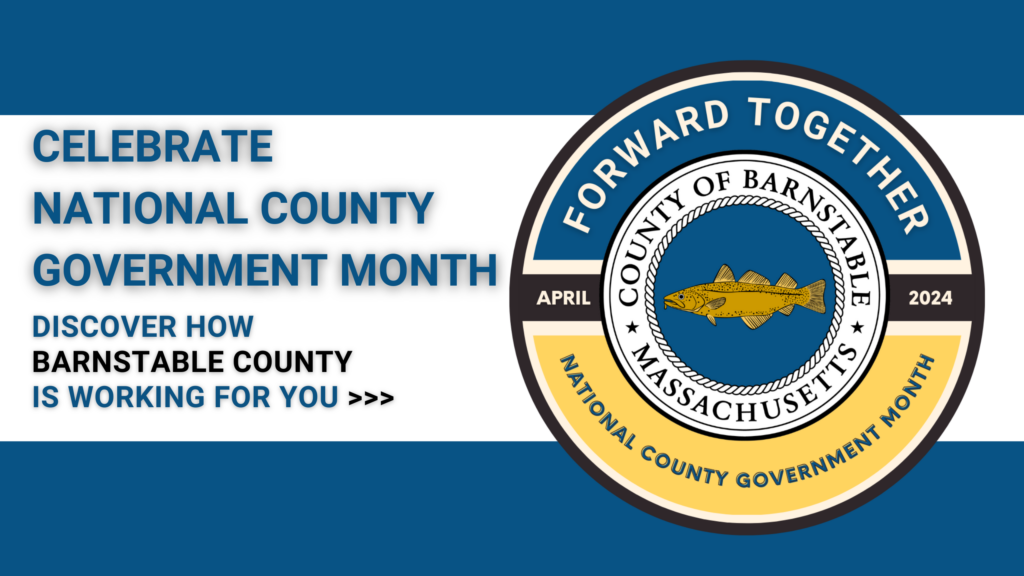
Advancing Public Health: Cape Cod’s Tobacco Control Program

About the County’s Tobacco Control Program
The Department of Health and Environment’s Tobacco Control Program, led by Robert Collett, is a cornerstone in promoting public health and safeguarding our community. This program, a vital part of the department, takes a comprehensive approach, including conducting annual visits to every tobacco merchant in 14 of the 15 Cape Cod towns, along with Martha’s Vineyard, Nantucket, Plymouth, and Wareham. These visits not only assist local boards of health in crafting and enacting tobacco control regulations but also serve as a platform to educate merchants about the new Massachusetts Tobacco Retail Laws, which came into effect on January 1, 2020.
The program also conducts up to 500 tobacco compliance checks and follow-ups annually, ensuring strict adherence to youth access laws. Violations of these laws carry fines of up to $1,000 for first-time offenders and $2,000 to $5,000 for repeat violations. The program also takes proactive steps in investigating complaints regarding violations of the MA Indoor Workplace Smoking Law and collaborates with local Boards of Health to address such issues.
Beyond enforcement, the CCRTCP actively collaborates with local public health and prevention entities to implement comprehensive substance abuse prevention strategies. Additionally, it plays a crucial role in public education, providing valuable insights and information on tobacco use and other nicotine delivery products, including e-cigarettes or vaping devices. Through its unwavering commitment to public health, the Tobacco Control Program continues to make a significant impact on creating a healthier environment and reducing tobacco-related harm in the region.
E-cigarettes have replaced cigarettes as the nicotine delivery device of choice among youth
Article previously published in the Community Health Newsletter
By Bob Collett, Tobacco Control Program Director
Efforts to reduce cigarette smoking among our youth over the past several years have resulted in historically low smoking rates. Meanwhile, however, the tobacco industry has endeavored to addict yet another generation to nicotine with the introduction and proliferation of electronic cigarettes, otherwise known as “vaping devices”. These products effectively exploit youths’ affinity for technology while promoting the misleading perception that they are much safer and healthier to use than cigarettes or other combustible tobacco products.
Predominance of Flavored E-Cigarettes amongst Middle and High School Students
A study released by the U.S. Food and Drug Administration (FDA) and the U.S. Centers for Disease Control and Prevention (CDC) in October of 2022 found that 2.55 million U.S. middle and high school students reported current (past 30-day) e-cigarette use in 2022, which includes 14.1% of high school students and 3.3% of middle school students. Nearly 85% of those youth used flavored e-cigarettes and more than half used disposable e-cigarettes. E-cigarettes produce an aerosol by heating a liquid that usually contains nicotine and flavorings. The liquid is commonly known as “e-juice” or “vape juice”. The devices can also be manipulated to deliver marijuana and other drugs.
Affect of Nicotine on the Developing Brain
Nicotine can produce structural and chemical changes in the adolescent developing brain and may lead to future alcohol and other drug addiction, panic attacks, irritability, depression and learning problems. Because of the way that nicotine affects the brain, people who start smoking as adolescents smoke more and have a harder time quitting than those who start as adults. Youth e-cigarette users are also much more likely to use cigarettes as adults.
Illegal Sales to Minors
Though the state of Massachusetts banned the sale of all flavored Nicotine Delivery Products and raised the legal age to purchase from 18 to 21 in 2020, youth continue to use these products at an alarming rate. Curiously, illegal sales to minors have returned to levels unseen in several years despite increased efforts to educate retailers and impose fines and sales permit suspensions for violators. Illegal sales are an issue as well, whereby young people, barely of legal age, are purchasing e-cigarette products such as Juul and selling them to minors for profit. The attraction for young people is almost irresistible, and companies such as Juul spend billions marketing the products to kids, despite their assertions to the contrary.
Continuing the Fight Against Smoking and Vaping
Manipulating teens to get them to buy harmful products is nothing new. Old-school cigarette companies, known as Big Tobacco, did it for years. In the 1930s, ’40s, and ’50s, cigarette ads featured images of smoking students wearing graduation caps or cheerleading uniforms. Some ads were designed like comic strips, and one brand even had a cartoon mascot until 1997. Today, e-cigarette companies like Juul (which is owned in part by Altria, a Big Tobacco corporation that makes several brands of cigarettes) are borrowing cigarette companies’ old tactics in their ads, packaging, and product design.
In 2022, the FDA announced proposed federal rules to prohibit the use of menthol in cigarettes and other flavorings used in cigars. Menthol is a flavor additive with a minty taste and aroma that reduces the irritation and harshness of smoking, thereby increasing the ease and appeal of smoking to youth and young adults. The public is urged to send a letter to the Biden Administration via the American Lung Association requesting that these rules be finalized. Visit the following link for more information: Ask President Biden to Remove Menthol Cigarettes and Flavored Cigars from the Market (lung.org).
While state and federal bans on these products are essential, it’s more important than ever that adults and youth are educated on the dangers of e-cigarettes. Parents, health care providers, teachers, and others can all make a difference simply by talking with young people about the negative impacts of nicotine.
For more information please visit our website at Tobacco Control Program – Barnstable County (capecod.gov).
Additional Resources
Know the Risks: E-Cigarettes and Young People



